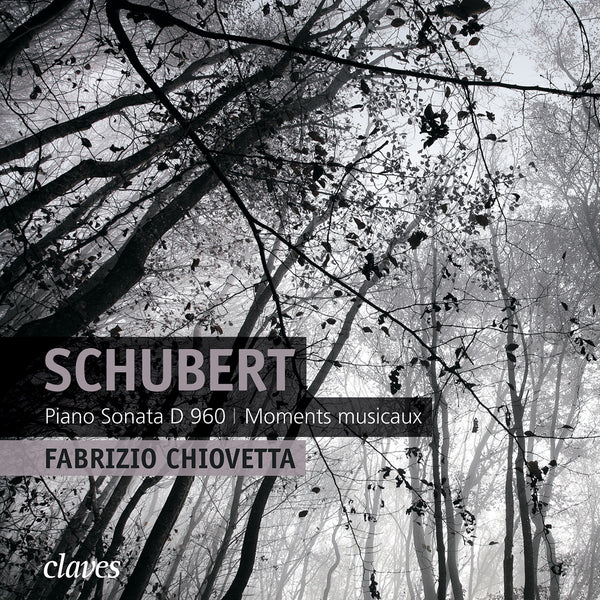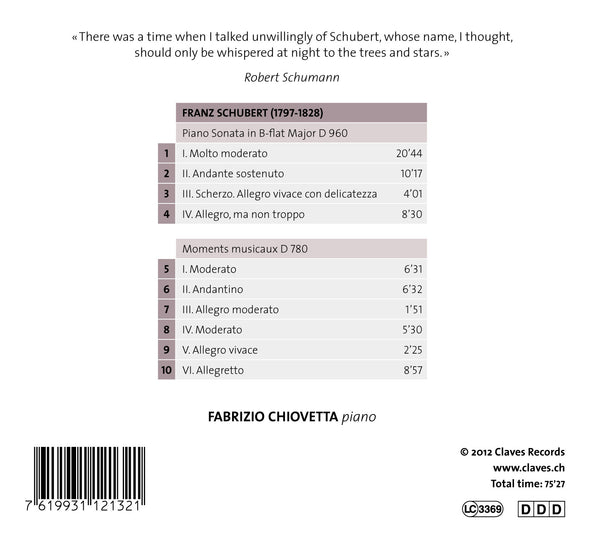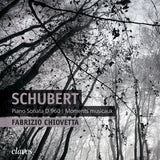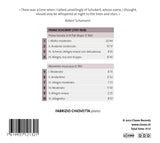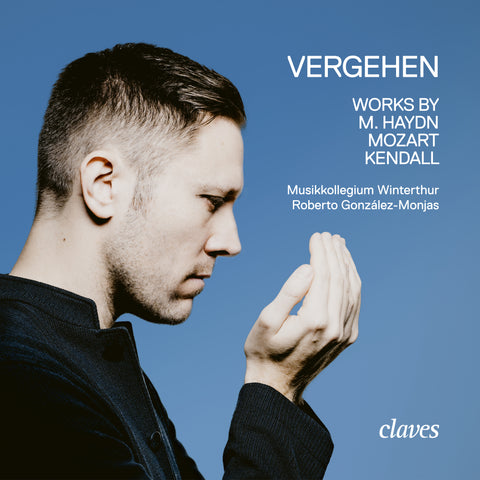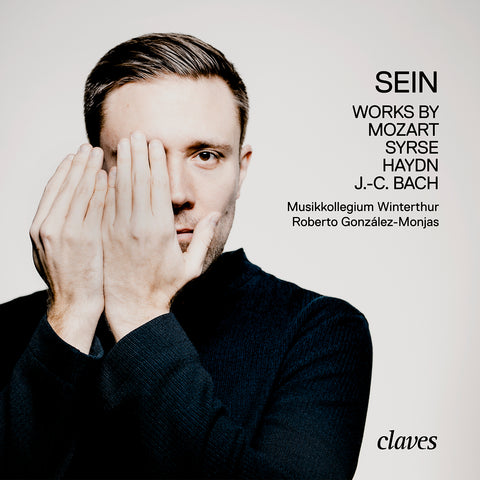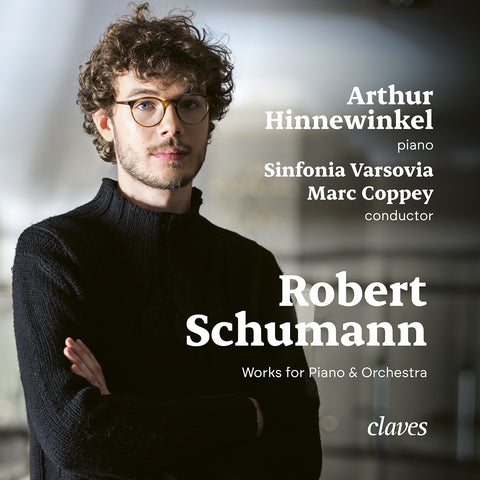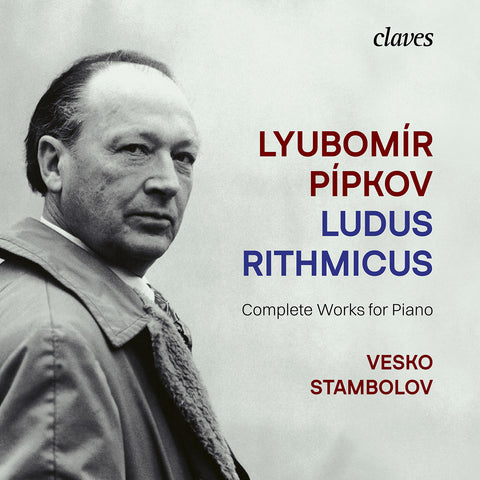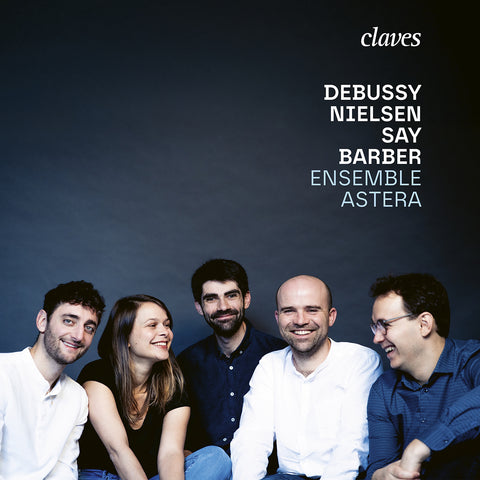(2013) Schubert: Piano Sonata, D. 960 - Moments musicaux, D. 780
Category(ies): Piano
Instrument(s): Piano
Main Composer: Franz Schubert
CD set: 1
Catalog N°:
CD 1213
Release: 15.01.2013
EAN/UPC: 7619931121321
- UPC: 191018933135
This album is now on repressing. Pre-order it at a special price now.
CHF 18.50
This album is no longer available on CD.
This album has not been released yet. Pre-order it from now.
CHF 18.50
This album is no longer available on CD.
CHF 18.50
VAT included for Switzerland & UE
Free shipping
This album is no longer available on CD.
VAT included for Switzerland & UE
Free shipping
This album is now on repressing. Pre-order it at a special price now.
CHF 18.50
This album is no longer available on CD.
This album has not been released yet.
Pre-order it at a special price now.
CHF 18.50
This album is no longer available on CD.
CHF 18.50
This album is no longer available on CD.
SCHUBERT: PIANO SONATA, D. 960 - MOMENTS MUSICAUX, D. 780
Born in Geneva; Fabrizio Chiovetta studied with Dominique Weber; Paul Badura-Skoda and John Perry. Besides being a soloist; he is a much sought-after chamber music partner and Lieder accompanist. He is also an improviser and works with artists from different horizons. He spends his life between Geneva and Paris. www.fabriziochiovetta.com
Rare are the musicians who truly manage to take on board Schubert’s piano music; to deliver its unusual perspectives without distorting its nature and mystery: the inner drama and doubt; intertwined with earthly spontaneity. The pianist; rather than interpreting this confidential voice; should sing it; freely; simply.
But this apparent simplicity is complex; with the vertiginous; common paradox of the human voice: behind the warmest tenderness; there is a scream. A breach; a weakness that becomes strength when; from the very depth of its shimmering itinerancy; comes forth a special radiance. Schubert’s voice is indeed in this intermediate state: the melody; intimate without being intimist; neither erases nor covers up the violence of the scream; but reveals it with its infinite diffractions; as though taming the violence.
It is possibly in his masterpieces for solo piano that Schubert places the musician at the heart of this paradox: the composer of Lieder; abandoning the singing voice; invites the pianist to play alone; but not as a soloist. As if he were to accompany an absent voice; and indeed to reveal through this voice-free playing the solitary essence of the song. Far from Romantic heroism; the pianist playing Schubert makes no statement. He does not say “I am singing” or “I am accompanying”: he merely sings.
With Schubert; Fabrizio Chiovetta is at the very heart of the matter. An intuitive and sensitive musician; a spontaneous improviser with a great sense of humour; the Genevese pianist accepts the invitation to travel along Schubert’s road as a bewildered passer-by; without the need to underline anything for the architectures to billow out and the magic to unfold. Full of his talent as Lieder accompanist; he allows Schubert’s enigmatic voice to emanate from his piano; he inflects it tenderly; finds a unique intonation for it… which brushes lightly past in order better to touch; which goes around in order better to seize; as if there only remained a fragile and radiant reminiscence of Schubert’s scream.
Sometimes the voice of a composer truly meets that of the interpreter; but it usually happens in a « father to son » lineage: when musicians do not stray away from the voice of the forefathers; they « model » it. Schubert’s voice; when musicians perceive it; is that of an absent brother. A painfully close trace; a generous invitation to express one’s own solitude.
In this recording; Fabrizio Chiovetta offers his profoundly genuine “Schubert” voice.
Valentin Peiry (translation: Isabelle Watson)
Born in Geneva; Fabrizio Chiovetta studied with Dominique Weber; Paul Badura-Skoda and John Perry. Besides being a soloist; he is a much sought-after chamber music partner and Lieder accompanist. He is also an improviser and works with artists from different horizons. He spends his life between Geneva and Paris. www.fabriziochiovetta.com
Rare are the musicians who truly manage to take on board Schubert’s piano music; to deliver its unusual perspectives without distorting its nature and mystery: the inner drama and doubt; intertwined with earthly spontaneity. The pianist; rather than interpreting this confidential voice; should sing it; freely; simply.
But this apparent simplicity is complex; with the vertiginous; common paradox of the human voice: behind the warmest tenderness; there is a scream. A breach; a weakness that becomes strength when; from the very depth of its shimmering itinerancy; comes forth a special radiance. Schubert’s voice is indeed in this intermediate state: the melody; intimate without being intimist; neither erases nor covers up the violence of the scream; but reveals it with its infinite diffractions; as though taming the violence.
It is possibly in his masterpieces for solo piano that Schubert places the musician at the heart of this paradox: the composer of Lieder; abandoning the singing voice; invites the pianist to play alone; but not as a soloist. As if he were to accompany an absent voice; and indeed to reveal through this voice-free playing the solitary essence of the song. Far from Romantic heroism; the pianist playing Schubert makes no statement. He does not say “I am singing” or “I am accompanying”: he merely sings.
With Schubert; Fabrizio Chiovetta is at the very heart of the matter. An intuitive and sensitive musician; a spontaneous improviser with a great sense of humour; the Genevese pianist accepts the invitation to travel along Schubert’s road as a bewildered passer-by; without the need to underline anything for the architectures to billow out and the magic to unfold. Full of his talent as Lieder accompanist; he allows Schubert’s enigmatic voice to emanate from his piano; he inflects it tenderly; finds a unique intonation for it… which brushes lightly past in order better to touch; which goes around in order better to seize; as if there only remained a fragile and radiant reminiscence of Schubert’s scream.
Sometimes the voice of a composer truly meets that of the interpreter; but it usually happens in a « father to son » lineage: when musicians do not stray away from the voice of the forefathers; they « model » it. Schubert’s voice; when musicians perceive it; is that of an absent brother. A painfully close trace; a generous invitation to express one’s own solitude.
In this recording; Fabrizio Chiovetta offers his profoundly genuine “Schubert” voice.
Valentin Peiry (translation: Isabelle Watson)
Return to the album | Read the booklet | Composer(s): Franz Schubert | Main Artist: Fabrizio Chiovetta








